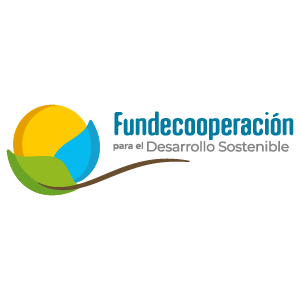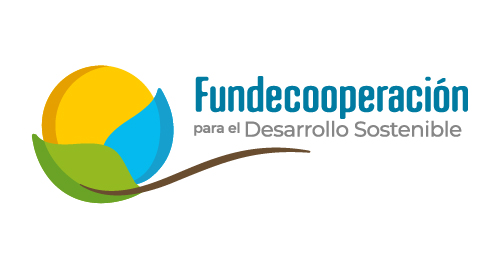We manage funding for innovative projects committed to sustainable development.
We are the bridge connecting international cooperants, local institutions, communities, and MSMEs. Our track record has earned us the support of various international organizations that believe in our work of supporting and helping innovative and sustainable solutions in every corner of the country.
We look for sustainable solutions and innovative projects that help meet Sustainable Development Goals (SDGs). Here are some of the projects we manage:

INNOVA-VERDE is an ideas competition jointly funded by the European Union and the German government for the purpose of financing innovative projects that contribute to mitigating carbon and other greenhouse gas emissions in the Costa Rican livestock sector.
At least 20 innovative ideas will be selected to receive grants for up to a total of 300,000 euros. The competition is being run by Fundecooperación para el Desarrollo Sostenible, coordinated by the Ministry of Agriculture and Livestock, co-funded by the European Union, German Federal Ministry of Economy and Climate Protection, and International Climate Initiative (IKI), and implemented by GIZ Central America, Tropical Agricultural Research and Higher Education Center (CATIE), CRUSA Foundation, and UNDP CR.
The importance of this initiative lies in its ability to drive and speed up sustainable solutions in the country’s livestock sector. The idea is to maintain the sector’s efficiency and profitability while at the same time reducing its environmental impact and fortifying its capacity to adapt to climate change.
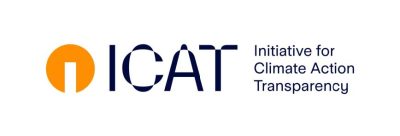
The ICAT III project aims to strengthen data management and enable the replication of the National Climate Change Metrics System (SINAMECC), expanding the registry of both mitigation and adaptation actions. This work is carried out in line with the principles of sustainable development and seeks to estimate the impact of actions in terms of transformational change.
Among the most significant achievements are the improvements made to the SINAMECC mitigation and adaptation modules. Thanks to the project’s intervention, for the first time it was possible to include the registry of adaptation actions, representing an important step toward a more comprehensive and accurate measurement of climate action in the country.
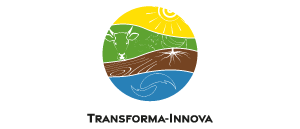
Transformación 308 Fincas is a project that aims to facilitate the implementation of the Livestock NAMA by transforming 308 cattle farms across the country. This transformation is carried out through the establishment of adaptation and mitigation measures for climate change, tailored to the specific conditions and needs of each farm, with the goal of increasing their resilience to the effects of climate change.
To date, the project has achieved significant progress: 95% of the material delivery to beneficiaries has been completed, 13 field days have been held to strengthen capacities in the territories, and over 30 million colones in credits have been allocated, directly supporting the implementation of sustainable practices on the farms.
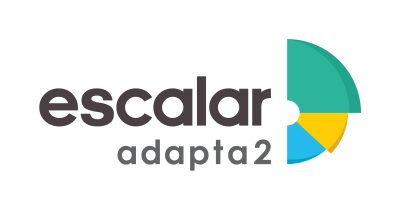
The results of the Adapta2+ program show the need for continued support for small agricultural producers, fishers, and Indigenous peoples, particularly women and children in their local markets, to build even greater resilience and ensure food security for the sectors most vulnerable to the effects of climate change.
This is why the Scale-up program, funded by the Adaptation Fund, was conceived. Building on the lessons learned from Adapta2+, it introduces new challenges through innovation and ventures aimed at solving different problems and building capacities for dealing with the impacts of climate change.
Project Name: Adapta2+ Scale-up program “Building the Resilience of Vulnerable Populations in Costa Rica through the Scale-up of Adapta2+”.
Goal: Boost the resilience of vulnerable populations in Costa Rica, particularly women, by expanding adaptation actions and strengthening the climate finance, value chains, and community-based organizations of food systems.
Projects being developed within the framework of the Scale-up program include Tu-MoDeLo (Tourism – Local Development Engine), an initiative that identifies market opportunities in the tourism sector for sustainable agricultural and fishery products adapted to climate change.

The idea of this initiative is to share experiences, information, and products (videos, guides, standards, articles, infographics, etc.) generated by the Adapta2+ program. The goal of sharing this Adapta2+ knowledge is to promote good practices and facilitate scalability of climate change adaptation in the agricultural, water resources, and coastal sectors.
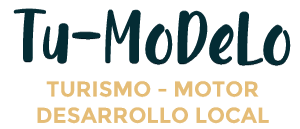
Tu-MoDeLo (Tourism – Local Development Driver) is an initiative that identifies market opportunities in the tourism sector for sustainable agricultural and fishery products adapted to climate change. At present it is being developed in the country’s northern zone and Guanacaste.
The initiative is the fruit of a public-private partnering of Fundecooperación, the Costa Rican Tourism Institute (ICT), and the Ministry of Agriculture and Livestock (MAG), together with local tourism associations, institutions, and private sector partners. Together, they demonstrate that Costa Rica’s tourism industry is a driver of local well-being in agricultural communities by generating jobs and economic growth, thereby improving the lives of communities vulnerable to climate change.
Key activities of the project include:
For more information on Tu-MoDeLo
And for tourism and agricultural enterprises in the country’s northern and northern Pacific area (Guanacaste) interested in joining Tu-MoDeLo, contact us or subscribe to our periodic newsletter to receive information directly to your email.

The project aims to strengthen the capacities of agricultural producers in Costa Rica so they can implement climate change adaptation measures. To achieve this, it seeks to scale up the lessons learned from the Adapta2+ Program and work in coordination with the Ministry of Agriculture and Livestock, as well as with local producers’ associations.
Among the most recent achievements are the support provided for training and dissemination activities on adaptation measures, as well as participation in key initiatives such as the Young Women’s Climate Parliament and the celebration of Farmers’ Day 2025, thus contributing to a more resilient, informed, and climate‑connected agriculture.
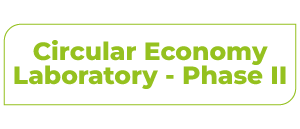
The project strengthens institutional capacities and promotes social participation to drive and support environmentally sustainable and inclusive management, based on circular economy models as a driver of territorial development in Latin America and the Caribbean. Circular Economy Laboratory – Phase II is funded by the Spanish Agency for International Development Cooperation.
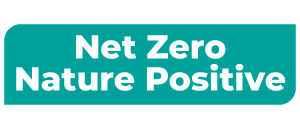
The project supports Costa Rica in the implementation of its National Decarbonization Plan by strengthening the integration of decarbonization and biodiversity, identifying key actions for the 2023–2050 phase of the NDP, and developing a series of mechanisms to accelerate decarbonization, integrate nature, and promote gender equity. The Net Zero Nature Positive Project is funded by the Global Environment Facility (GEF).
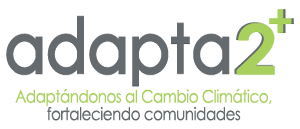
Adapta2+ is a program funded by the United Nations Adaptation Fund, which supports climate change adaptation programs in developing countries that are vulnerable to its adverse effects.
The goal of the initiative is to reduce the vulnerability of communities to the impact of climate change and boost resilience in the following sectors categorized as critical: agriculture, water resources and coastal areas, and capacity-building.
Adapta2+ has supported more than 40 national initiatives in the hopes of impacting 483 farming families and benefitting more than 50 water operators that supply water to more than 50,000 people in different communities throughout the country to help them adapt to climate change.
This program is implemented by Fundecooperación as the implementing entity with the support of the Climate Change Directorate of the Ministry of Environment and Energy (MINAE) and the Ministry of Agriculture and Livestock (MAG).
Good Agricultural Practice Handbook – Adapta2+ Program
Good agricultural practice handbooks are essential tools for climate change adaptation in crops. Presented as comprehensive guidelines, they are designed to help technical advisors as well as producers. These handbooks offer:
- Practical guidelines for comprehensive management of factors affecting crops;
- Sustainable agricultural practices for optimum soil management; and
- Information on adaptation to build resilience to a changing climate.
These handbooks are an effort by the National Extension Directorate of the Ministry of Agriculture and Livestock, with the sponsorship of Fundecooperación para el Desarrollo Sostenible and the active participation of INTA and INA, to benefit producers, consumers, and the environment They were prepared with Adaptation Fund funding through the Adapta2+ program implemented by Fundecooperación para el Desarrollo Sostenible.
Download the handbooks on tomatoes, leafy greens, and bell peppers by clicking on the button for the handbook you want to access:
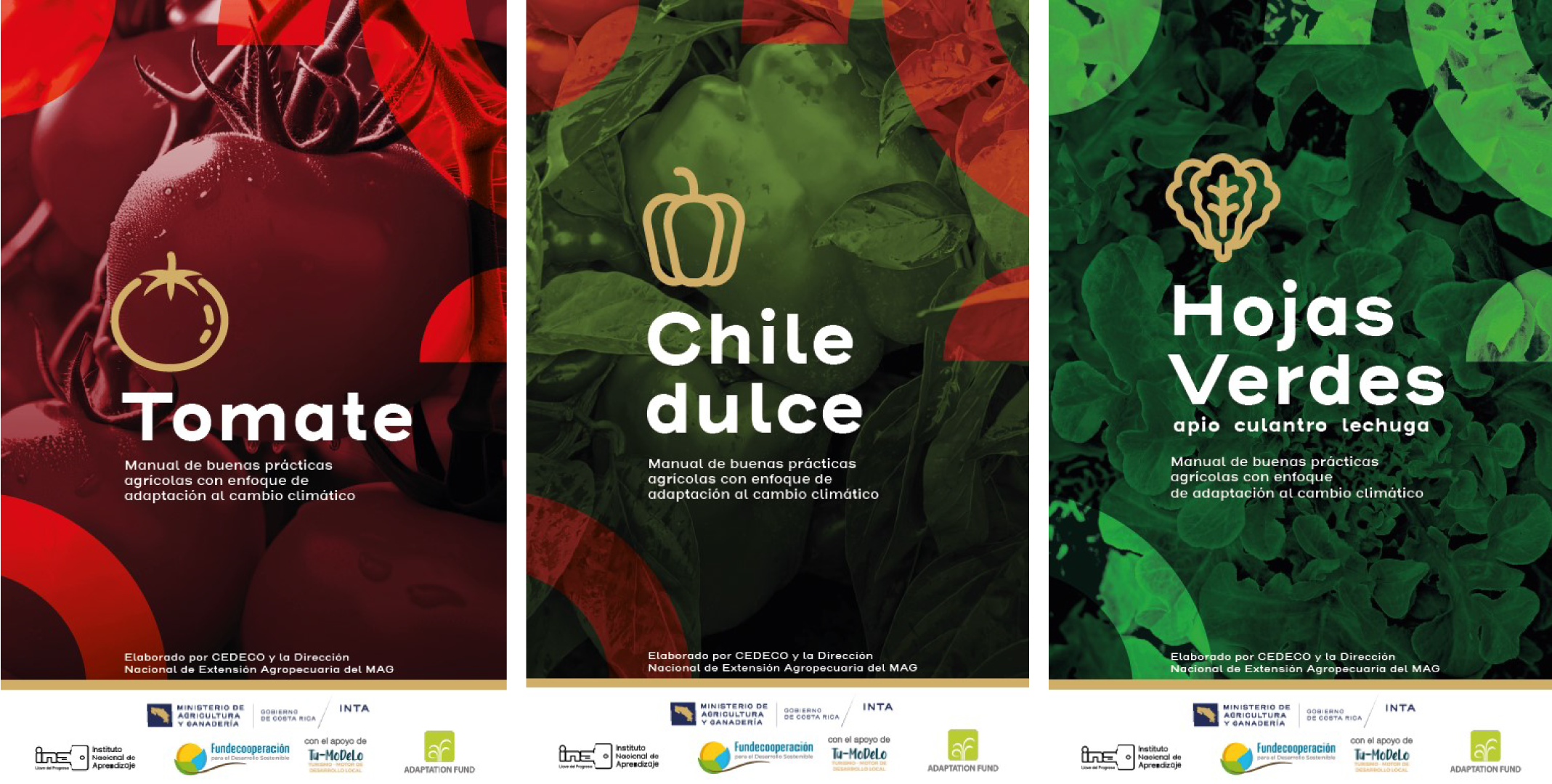
Explore valuable resources and expert knowledge through the Adapta2+ Program.
Get the information you need by clicking on the button of the resource you want to access:
Dive into an interactive tour to learn the achievements and details of the Adapta2+ program.
Click on the button to access the scrollytelling of Adapta2+:
Executed Projects 1994-2024
Plan A
 This initiative builds capacity to integrate climate action into regional and municipal planning in the country’s regions, beginning with a pilot program in 20 cantons for effective integration of adaptation actions into planning mechanisms. It is being extended with climate risk assessments, methodological guides and training to identify adaptation needs in the remaining 62 cantons and includes adaptation financing strategies and a monitoring and evaluation mechanism.
This initiative builds capacity to integrate climate action into regional and municipal planning in the country’s regions, beginning with a pilot program in 20 cantons for effective integration of adaptation actions into planning mechanisms. It is being extended with climate risk assessments, methodological guides and training to identify adaptation needs in the remaining 62 cantons and includes adaptation financing strategies and a monitoring and evaluation mechanism.
Circular Economy Laboratory
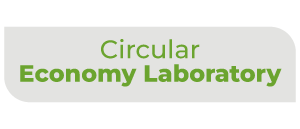 The project “Public Innovation Laboratory with a Territorial Approach to Strengthen Environmental and Climate Action through the Circular Economy” seeks to support and foster, from a territorial and ecosystemic perspective, public policy that promotes strengthening of the circular economy, driving institutional coordination among the different public sector, civil society, and private sector levels. The project is being jointly implemented by Fundecooperación para el Desarrollo Sostenible and the Spanish Cooperation Training Center in Antigua (CFCE Antigua).
The project “Public Innovation Laboratory with a Territorial Approach to Strengthen Environmental and Climate Action through the Circular Economy” seeks to support and foster, from a territorial and ecosystemic perspective, public policy that promotes strengthening of the circular economy, driving institutional coordination among the different public sector, civil society, and private sector levels. The project is being jointly implemented by Fundecooperación para el Desarrollo Sostenible and the Spanish Cooperation Training Center in Antigua (CFCE Antigua).
Green Urban Recovery Fund
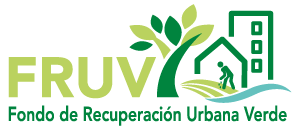 Carried out from 2007 to 2012 with a budget of $13 million, this project was implemented by Fundecooperación as Secretary and financed by the Kingdom of the Netherlands. It consisted of a successful model of cooperation between Costa Rica in Central America, Benin in West Africa and Bhutan in South Asia that gave rise to 43 multilateral projects aimed at developing innovative solutions to common challenges within the four interconnected pillars of sustainable development: economic development, social development, environmental protection, and gender equity.
Carried out from 2007 to 2012 with a budget of $13 million, this project was implemented by Fundecooperación as Secretary and financed by the Kingdom of the Netherlands. It consisted of a successful model of cooperation between Costa Rica in Central America, Benin in West Africa and Bhutan in South Asia that gave rise to 43 multilateral projects aimed at developing innovative solutions to common challenges within the four interconnected pillars of sustainable development: economic development, social development, environmental protection, and gender equity.
The Green and Biodiverse Urban Recovery Fund
The Green and Biodiverse Urban Recovery Fund (Fondo de Recuperación Urbana Verde y Biodiversa, or FRUV) project aimed to serve as a mechanism to support non-governmental organizations, associations, community-based groups, and MSMEs in carrying out innovative green initiatives. These initiatives were selected on the basis of project profiles submitted through an open call for proposals. Beneficiaries contributed with their innovations to creating a greener and more biodiverse city, helping the economy to recover from the COVID-19 pandemic.
A key criteria for selecting the initiatives that received co-financing is that they included a positive environmental component and made sure their actions aligned with the National Biodiversity Strategy 2016–2025, the country’s National Decarbonization Plan, and the National Adaptation Policy. Additionally, they contributed to the Aichi Biodiversity Targets and the Sustainable Development Goals.
Learn more about the project:
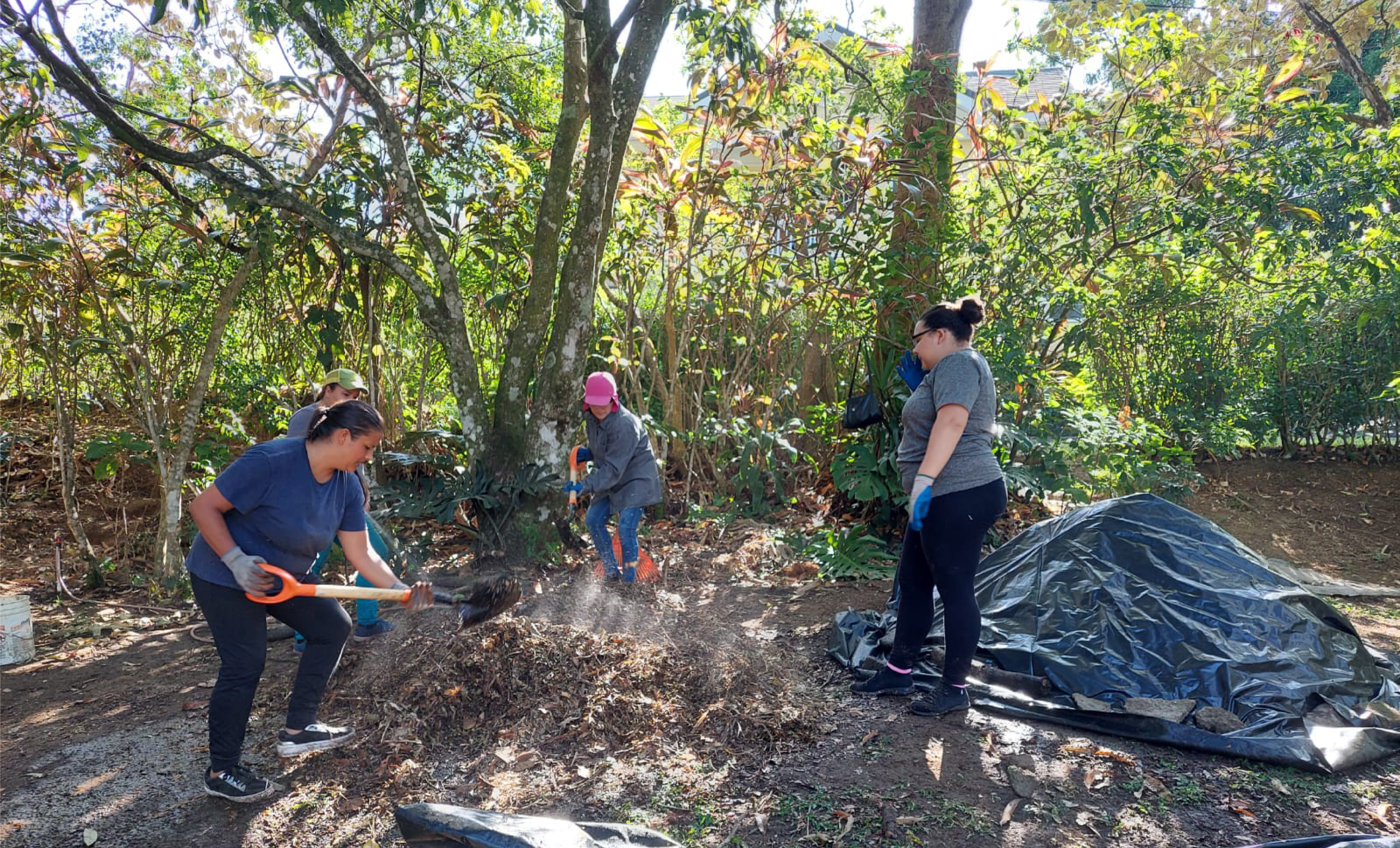
Green Urban Recovery Fund
Visión de Primera Línea
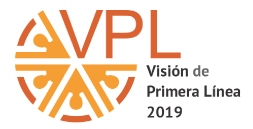 Views from the Frontline 2019 was a project of the Global Network of Civil Society Organizations for Disaster Reduction (GNDR). Funded by the European Union, its goal was to enhance inclusion and collaboration among governments, at-risk populations, and civil society regarding policies and practices to reduce risk and strengthen community resilience, sustainable development, economic development, social development, environmental protection, and gender equity.
Views from the Frontline 2019 was a project of the Global Network of Civil Society Organizations for Disaster Reduction (GNDR). Funded by the European Union, its goal was to enhance inclusion and collaboration among governments, at-risk populations, and civil society regarding policies and practices to reduce risk and strengthen community resilience, sustainable development, economic development, social development, environmental protection, and gender equity.
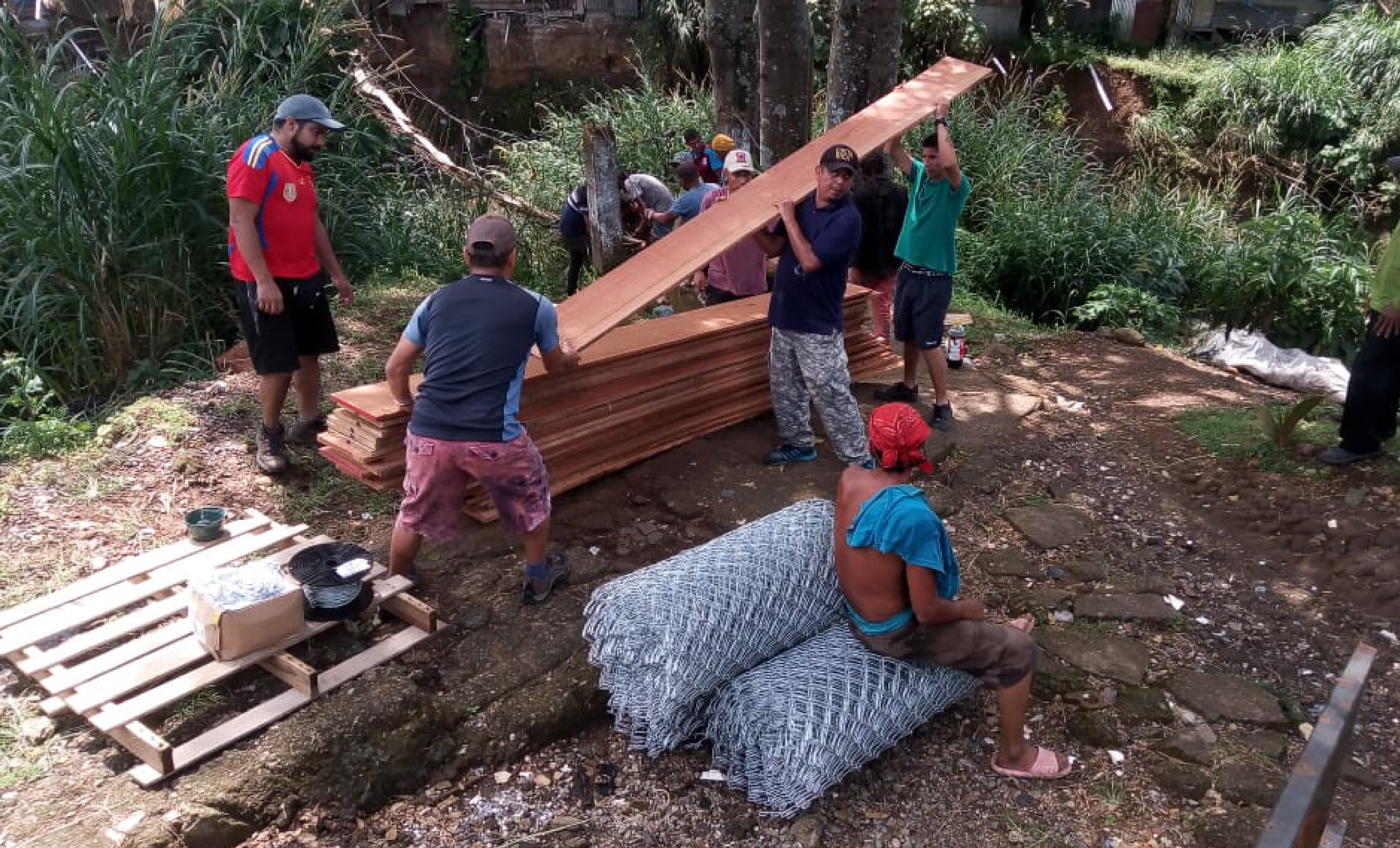
Microfinanzas para la Adaptación basada en Ecosistemas
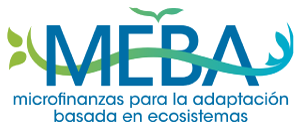
Microfinance for ecosystem-based adaptation, known as MEbA, offered solutions that enable microfinance institutions (MFIs) and their customers to enhance their capacity to manage climate risks and implement ecosystem-based adaptation options (EbAs). The project aimed to benefit more than 23 microfinance institutions worldwide and was funded by the International Climate Initiative (IKI) of the German Federal Ministry for the Environment, Nature Conservation, and Nuclear Safety (BMU), implemented by UN Environment, and coordinated by Fundecooperación.
Due to its sustainability-centered approach, Fundecooperación was selected to participate with the goal of strengthening the adaptive capacity of rural communities, particularly agricultural producers, while also developing its credit program with innovative financial products and services to help address climate change. The implementation of MEbA strengthened Fundecooperación’s tailored credit program by integrating new innovative financial products, enabling a more effective approach to dealing with climate change. Through the management and implementation of these international cooperation projects for climate action, in addition to capacity-building efforts through the dissemination of success stories, lessons learned, and knowledge manuals, the Foundation helped Costa Rican producers and their families learn to implement adaptation and mitigation measures and identify necessary and effective tools for doing so.
Fondo Ciudad Verde
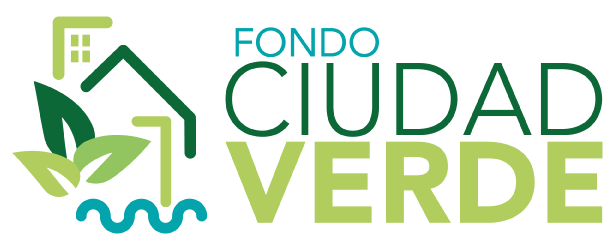
The Green City Fund (FCV) was the fruit of a partnership between the Ministry of Environment and Energy (MINAE), the National System of Conservation Areas (SINAC), Fundecooperación para el Desarrollo Sostenible, and the German Corporation for International Cooperation (GIZ). The FCV promoted ‘greening’ initiatives within the Río Torres Biosphere Reserve and Río María Aguilar Interurban Biological Corridors (CBIs) such as reforestation, green space rehabilitation, tourism, recreation, urban agriculture and gardening, and green architecture, among others. The goal was to recognize, conserve, and utilize the benefits of biodiversity and ecosystem services in urban areas.
The FCV was implemented under two financing modalities:
- Non-reimbursable and competitive.
- Reimbursable with tailored credit conditions, applicable with a special focus on the following areas:
- o Within the Río Torres Biosphere Reserve and Río María Aguilar Interurban Biological Corridors.
- o Within or around other Interurban Biological Corridors in the Central Conservation Area: Garcimuñoz, Cobric Surac, Pará-Toyopán, and Achiote
- o Other territories interested in interventions for a greener city.
Both modalities were subject to FCV guidelines.
ICAT Initiative for Transparency
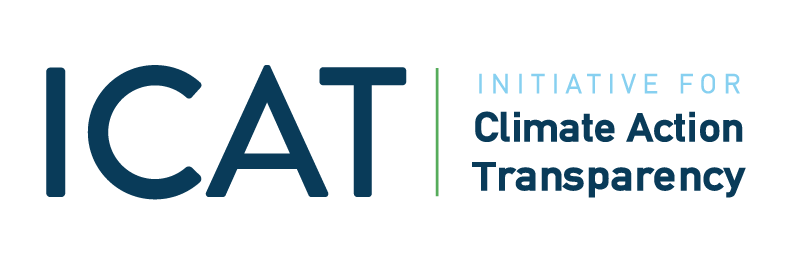 This initiative improved the transparency of climate data on mitigation actions in the National Climate Change Metrics System. It finalized the development of guidelines for analyzing the impacts of mitigation actions on sustainable development and transformational change and now generates information for decision-making and policy design based on accurate and timely data.
This initiative improved the transparency of climate data on mitigation actions in the National Climate Change Metrics System. It finalized the development of guidelines for analyzing the impacts of mitigation actions on sustainable development and transformational change and now generates information for decision-making and policy design based on accurate and timely data.

Capacity-Building Initiative for Transparency (CBIT) and the Climate Action Enhancement Package (CAEP)
This project supported the development and strengthening of tools for climate data quality management and national capacities to meet the reporting requirements of the Enhanced Transparency Framework (ETF) under the Paris Agreement in order to enable monitoring and demonstrate compliance with climate goals according to the United Nations Framework Convention on Climate Change (UNFCCC).
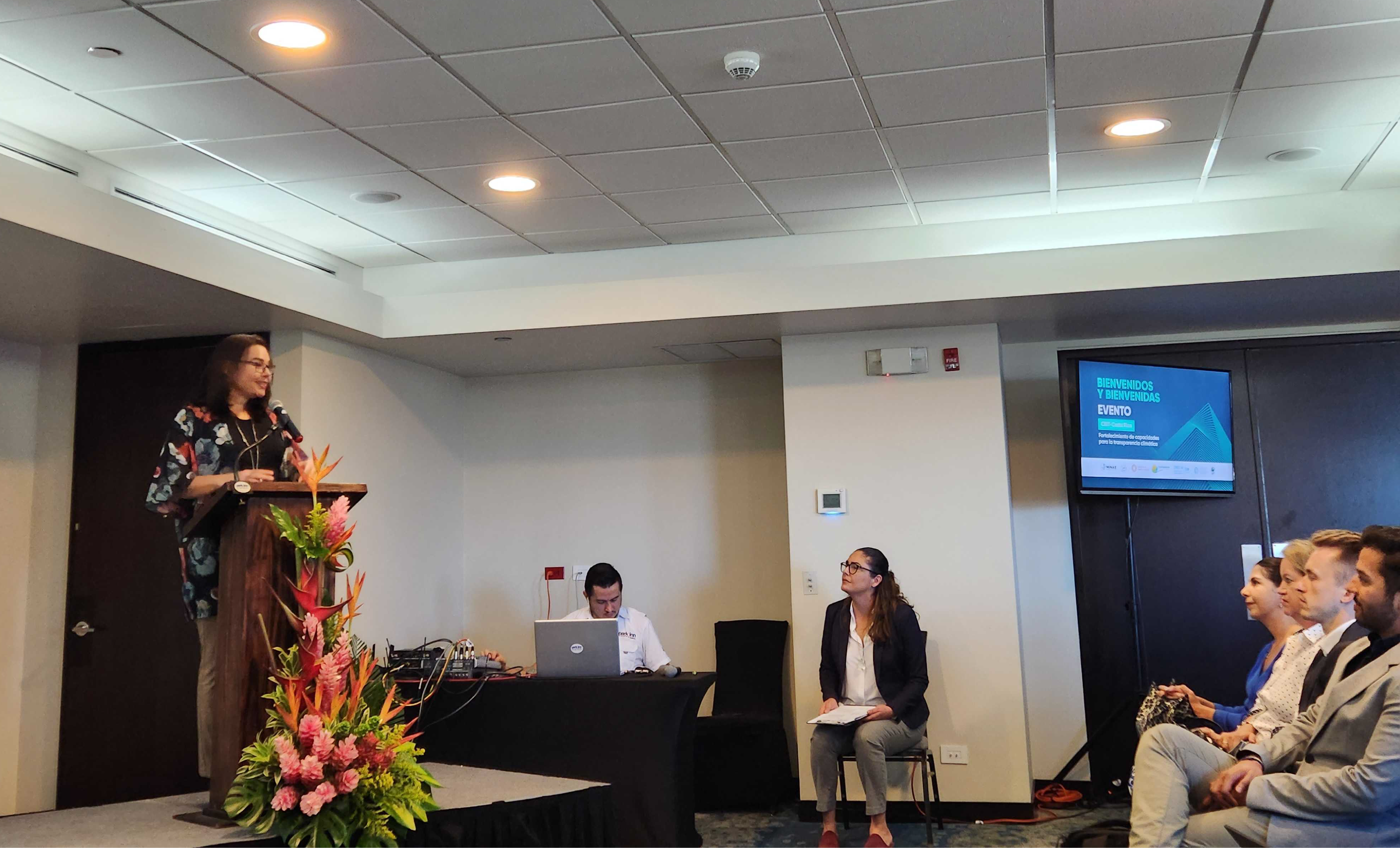
Partners for Review
 This initiative created an online multi-stakeholder reporting mechanism to showcase the contributions of non-state signatory parties to the National Pact for Advancing the Sustainable Development Goals. The idea was to make the 2030 Agenda a national commitment by facilitating SDG access, monitoring, and accountability using alternative data.
This initiative created an online multi-stakeholder reporting mechanism to showcase the contributions of non-state signatory parties to the National Pact for Advancing the Sustainable Development Goals. The idea was to make the 2030 Agenda a national commitment by facilitating SDG access, monitoring, and accountability using alternative data.
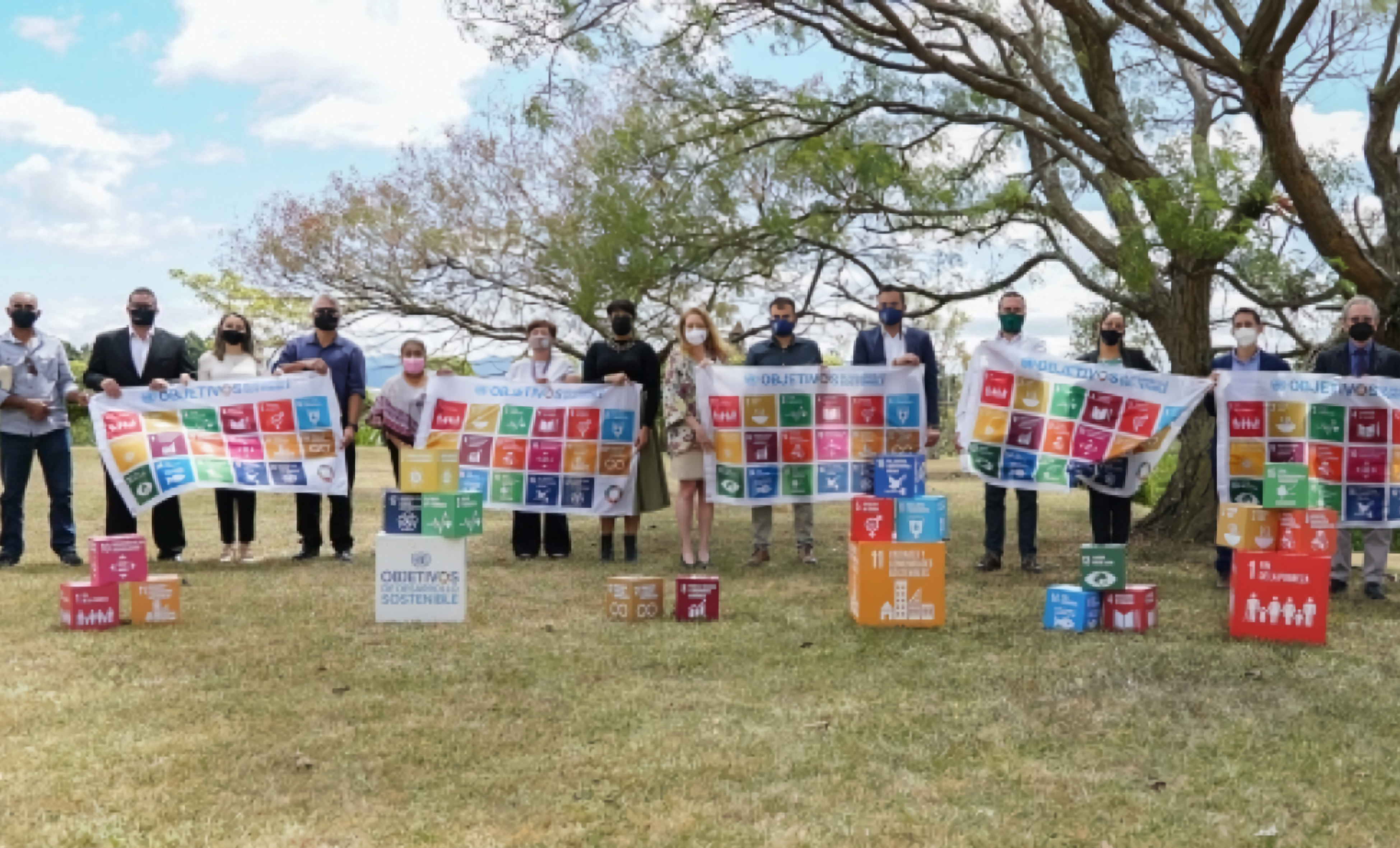
Capacity Building for Pig Farmers in Costa Rica
‘Virtual Field Days’ were held to transfer knowledge among producers through success stories and lessons learned in order to implement sustainable practices in their production systems. The topics included nutrition, waste management, breeding techniques, reproduction, biosecurity, production cost and record management, legal aspects, and permits for the productive activity’s sustainable development.
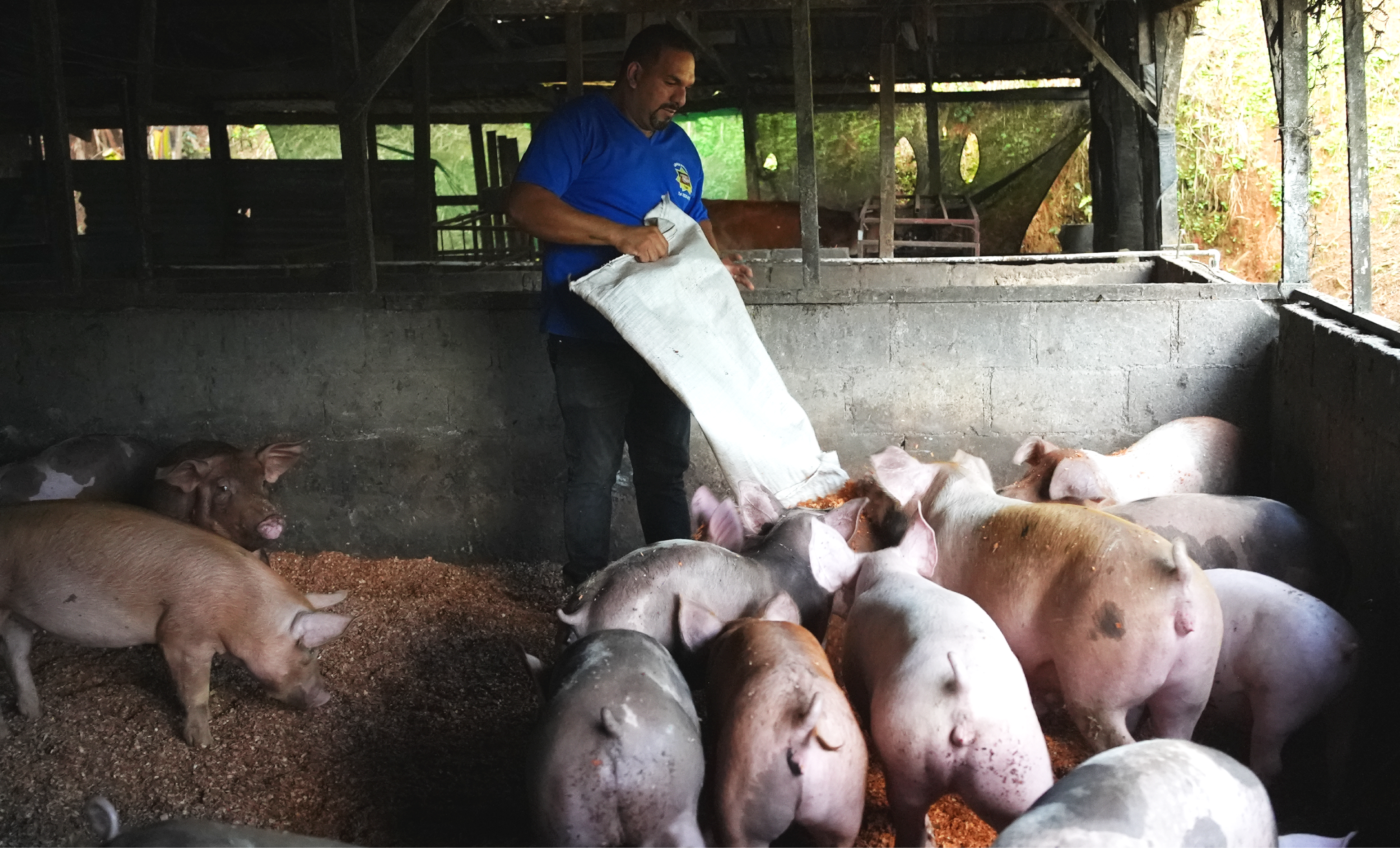
South-South Cooperation Program (PSC) between Benin (Africa), Bhutan (Asia), and Costa Rica (Central America)
Carried out from 2007 to 2012 with a budget of $13 million, this project was implemented by Fundecooperación as Secretary and financed by the Kingdom of the Netherlands. It consisted of a successful model of cooperation between Costa Rica in Central America, Benin in West Africa and Bhutan in South Asia that gave rise to 43 multilateral projects aimed at developing innovative solutions to common challenges within the four interconnected pillars of sustainable development: economic development, social development, environmental protection, and gender equity.
Triangular Cooperation between Costa Rica, Morocco, and Germany
In 2013, Costa Rica, Morocco, and Germany launched a cooperation project to strengthen the sustainable management and use of forests, protected areas, and watersheds in the context of climate change, generating joint actions through knowledge sharing among the three countries.
This project is considered a national and international model due to its concrete results, demonstrating the positive impact of south-south and triangular cooperation.
Integrated Water Resource Management Project
The objectives of this project were to promote integrated management and conservation of water resources in the Térraba-Sierpe National Wetland and Grecia areas through experience sharing, social participation, and the strengthening of ASADAS and local organizations.
It was developed with funding from the CRUSA Foundation and implemented collaboratively by Fundecooperación and the University of Costa Rica.
¡Construyamos juntos sus sueños!
Teléfono: + (506) 2225-4507
@Fundecooperacion
(506) 2225-4507
